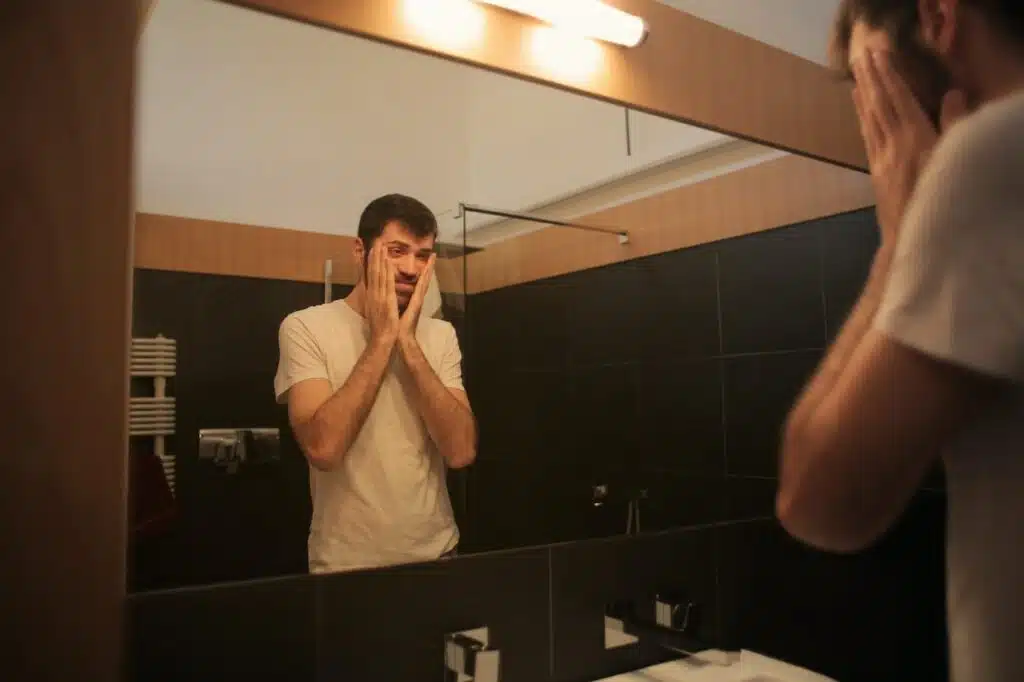Getting a loose tooth is usually an exciting milestone for growing children. However, a loose adult tooth, which is supposed to be permanent, is cause for concern and requires a visit to your dentist. Loose teeth are common and can occur to anyone at any age. There are several possible causes and treatments to help save your teeth. Find out what to do if your tooth is loose but still attached below.
If you have a loose tooth or other dental problem, schedule an appointment at Trident Dental for a comprehensive oral examination.
5 Causes of Loose Adult Teeth
Healthy adult teeth do not get loose and fall out without an underlying cause. There are several reasons you can have a loose tooth, including:
-
Advanced gum disease. Untreated gingivitis can progress into a more serious condition known as periodontal disease or periodontitis. Gingivitis affects the gums and does not lead to tooth mobility. However, periodontitis infects and destroys the bone that supports teeth.
-
Trauma. A blow to the mouth during an accident, such as an automobile accident or while playing sports, can move the tooth in its socket. Typically, the injury causes stretching of the ligament and detachment of the gums that hold the tooth in place.
-
Bruxism. Stress often causes clenching or grinding of your teeth, known as bruxism. This puts constant pressure on your tooth and the tissues that support them. There are many adverse consequences to bruxism, including loose teeth.
-
Hormonal changes. The changes seen during pregnancy and menopause can affect the jawbone and gums to cause loose teeth.
-
Osteoporosis. Osteoporosis triples the likelihood of having loose teeth due to its weakening effect on the jawbone.
Treatment for a Tooth That is Loose but Still Attached
Depending on the severity and cause of your loose teeth, you may have more than one option to treat the problem. The treatments may include:
-
Splinting. Teeth that become loose after trauma are often splinted together to stabilize them. After splint removal, you will be evaluated for other treatment needs, such as root canal therapy.
-
Mouth and night guards. If you grind your teeth at night, a custom-made night guard can help prevent damage like loose and cracked teeth.
-
Deep cleaning. If periodontal disease has caused your loose teeth, scaling and root planing (deep cleaning) can help restore gum and bone health. Teeth will often tighten up after this non-surgical treatment.
-
Periodontal surgery. Several surgical procedures can help reduce or eliminate tooth mobility. They include flap surgery to clean tartar from pockets around tooth roots. After ensuring clean pockets, the gums are repositioned to facilitate oral hygiene. Other procedures, such as gum and bone grafts, are often done with flap surgery to improve the health of the tissues that support teeth.
-
Tooth extraction. Some loose teeth, especially those with severe periodontal disease or damage from trauma, need to be removed. Typically, these teeth are replaced with implants, fixed dental bridges, or partial dentures.
Schedule Appointment
Contact us at Trident Dental to learn how we can help you prevent dental disease and maintain healthy teeth and gums for a bright smile. If you have loose teeth, we have several treatments to help you save the teeth. We also have many options to replace missing teeth, including dental implants and crowns.

